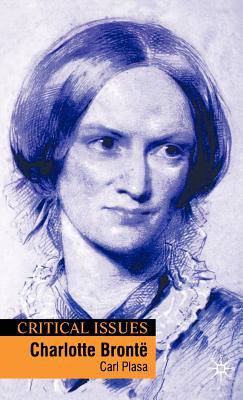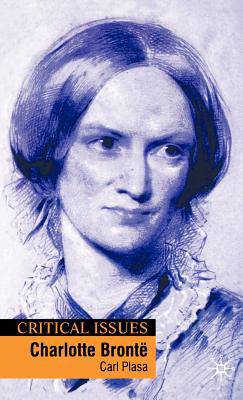
- Afhalen na 1 uur in een winkel met voorraad
- Gratis thuislevering in België vanaf € 30
- Ruim aanbod met 7 miljoen producten
- Afhalen na 1 uur in een winkel met voorraad
- Gratis thuislevering in België vanaf € 30
- Ruim aanbod met 7 miljoen producten
Zoeken
€ 115,95
+ 231 punten
Uitvoering
Omschrijving
The writings of Charlotte Brontë - a member of one of the great literary families - have inspired, fascinated and moved readers ever since their first publication in the mid-nineteenth century. In this new study, Carl Plasa elaborates a series of textually focused, historically grounded and theoretically informed analyses of the full range of the author's texts. As well as providing original readings of Brontë's four best known novels - The Professor, Jane Eyre, Shirley and Villette - attention is given to less familiar and critically neglected areas of Brontë's work, such as the Ashanti narratives, the poetry and the Belgian essays of the early 1840s. Charlotte Brontë's work has undergone a significant reassessment from a postcolonial critical perspective in recent years. By examining Brontë's textual production from its exuberant and experimental beginnings to the formal complexity of Villette, her last completed novel, Plasa offers what is the most comprehensive exploration to date of the shifts in the writer's engagement with the question of colonialism. In so doing, he brings to light the subtle relationships of continuity and transformation between the earlier and later stages of Brontë's literary career and demonstrates the extent to which that career was sparked and driven by her 'colonial imagination'.
Specificaties
Betrokkenen
- Auteur(s):
- Uitgeverij:
Inhoud
- Aantal bladzijden:
- 190
- Taal:
- Engels
- Reeks:
- Reeksnummer:
- nr. 11
Eigenschappen
- Productcode (EAN):
- 9780333922477
- Verschijningsdatum:
- 1/06/2004
- Uitvoering:
- Hardcover
- Formaat:
- Genaaid
- Afmetingen:
- 139 mm x 226 mm
- Gewicht:
- 371 g

Alleen bij Standaard Boekhandel
+ 231 punten op je klantenkaart van Standaard Boekhandel
Beoordelingen
We publiceren alleen reviews die voldoen aan de voorwaarden voor reviews. Bekijk onze voorwaarden voor reviews.











